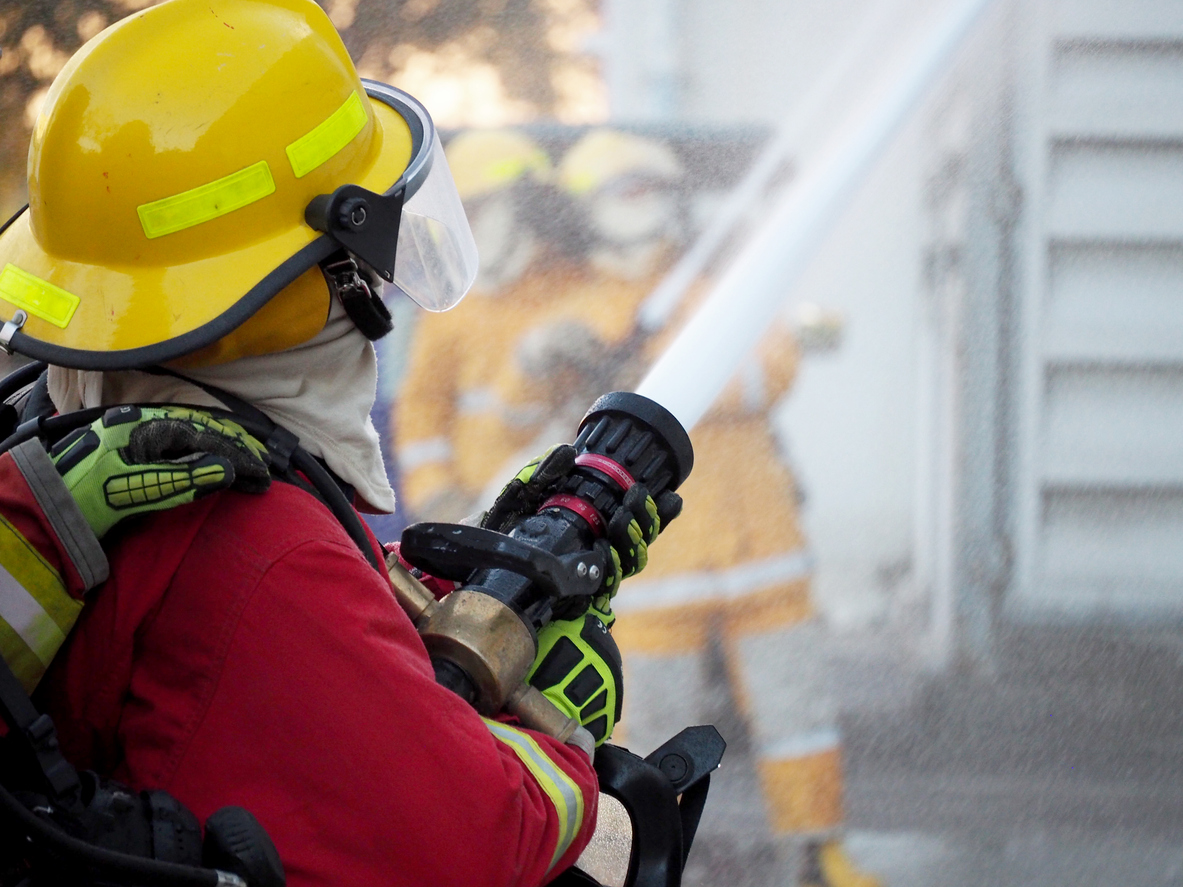
Protecting firefighting stations from contamination is essential to ensuring the health of firefighters and technicians. Firefighting has many hazards, including heat exhaustion, mental trauma, and severe burns. Indeed, firefighters most commonly encounter risks at the site of a fire, but liabilities can linger even once firefighters are back at the station. One of the most severe risks is the potential contamination when debris and smoke from a fire site enter the station. Although this is a common occurrence, it’s also a significant risk factor, and continuous exposure via contamination may harm the health of firefighters.
Protecting Firefighting Stations
Find out how to avoid potential contamination, reduce adverse health outcomes, and find the right firefighter coverage.
Assess Water and Air Quality
The first step to combatting contamination is measuring the extent of the problem. Unfortunately, many fire stations are home to poor air and water quality, and firefighters can assess the presence of contaminants by investing in testing from a municipal authority. The local water provider or environmental authority likely offers quality testing services upon request. Fire stations should reach out to these resources and schedule testing services for their air and water.
Install Industrial Exhaust Systems
Regardless of the results of an air quality test, an industrial exhaust system is an imperative feature in any fire station. This system should include vents to facilitate the escape of vapors as well as fans to encourage continuous airflow. The addition of a magnetic or vacuum component can further facilitate the removal of harmful toxins and contaminants that may be present in the air. Staff should be sure to maintain the exhaust system carefully and ensure that it is working correctly.
Enforce Decontamination Protocol
Most fire stations have a specific set of standards relating to the decontamination of equipment, turnout gear, and personnel after visiting the site of a fire. Firehouses should remove and clean all these items and have a set of spare equipment handy, so no one reuses contaminated supplies. Likewise, it would not be prudent to hose down firefighting personnel. Firefighters should carefully sanitize skin with baby wipes or another antibacterial cleanser. This protocol isn’t enough, though — firefighting leadership must enforce it at all times.
Include improvement in the Budget
Sometimes a fire station is contaminated due to unsafe building materials. For example, there have been lawsuits emerging after asbestos exposure in fire stations. Fire departments need to include necessary safety improvements in the budget. It may reduce the likelihood of a claim against their insurance for firefighters. More importantly, insurance for firefighters can offer property insurance coverage that may make such upgrades easier. Eliminate avoidable health risks by preventing contamination inside and outside the fire station.
About Provident Fire Plus
At Provident Fire Plus, we offer custom tailored packages to best protect firefighters and volunteer firefighters. We understand the risks that emergency response teams are subjected to on a daily basis, and have worked to serve these dedicated professionals for over 87 years. For more information about our products and policies, we invite you to contact our experts today at (855) 201-8880.

